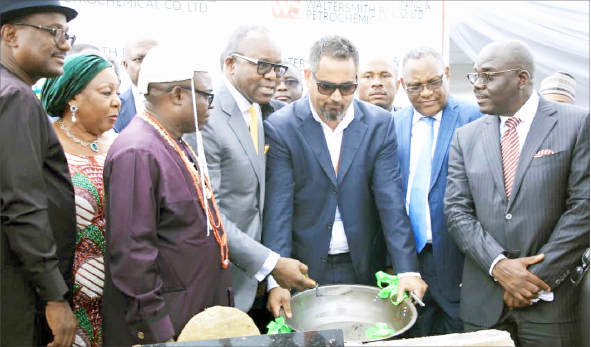Experts in the petroleum industry who discussed way forward at the Nigerian Petroleum Industry Summit in Abuja on Monday have called for clearer explanation on how far the Federal Government has gone through the Nigerian National Petroleum Corporation (NNPC) in reviving the moribund national refineries.
Majority of the experts queried not only the observed back and forth attention to the facilities, but recent silence by the leadership of the NNPC under the management of Dr Maikanti Baru.
Anger of the pundits was more pronounced as they argue that the inability of the current administration to fix the refineries has given rise to retaining the current subsidy regime in the country’s petroleum downstream segment which they said, is unsustainable as it produces inefficiency in the value chain, thus impeding industry progress.
They said the practice has created and will continue to create a subjective system, which has made the reform of the downstream industry very pertinent given the critical state it is in and the need to salvage its future.
Business Hilights recalls that Nigeria is the 8th largest exporter of oil behind the United Arab Emirates, Iran, Kuwait, and in 2017, exported approximately four per cent of the world’s total oil, but heavily dependent on the importation of fuel products which the same NNPC is the country’s sole supplier of petroleum products.
According to an energy expert, Igo Phillips, even though the purposeful actions of the Pipelines and Product Marketing Company (PPMC) ensured a consistent supply of petroleum products in 2018, stakeholders are worried about how sustainable this is, especially as the country is experiencing an increasing demand for petrol.
He averred that “The country’s current fuel pricing model is flawed. The downstream oil industry is on a downward spiral. It appears as though the longer the subsidy regime is in place, the harder it is to oppose. It is important to note that the overconsumption of petroleum products induced by subsidies is likely to put pressure on the balance of payments of oil-importing countries, which comes at an extremely high cost – something Nigeria needs to avoid.”
Philips added that the aim of introducing the subsidy system in Nigeria was to serve the public interest, by cushioning the underprivileged in the society. However, the subsidy regime has fallen short of its intended goal, stressing further that “The subsidy regime can be classified as being defective, having created a negative impact on the economic efficiency, growth and competitiveness of the oil sector.
“It has created huge debts and tied down working capital of oil marketing companies (OMCs). Subsidy has absorbed a large share of resources, which could have been directed towards nation building, investment in the health and educational sectors of the county and more productive government spending; these subsidies most times do not even reach their intended beneficiaries.
“Subsidy has created a disincentive for private investing in infrastructure in the downstream petroleum industry by restricting private players and discouraging competition and transparency. Finally, the subsidy regime is beset with high administrative costs, leading to inefficiencies.”
Whereas analysts believe that the time is now for the industry to take back control of the business as worldwide, petroleum products prices are either determined by price regulated regimes or price unregulated regimes.
However, this school of thought can only be workable if Nigerian refineries are revived and ahead of coming on stream of Dangote Refinery which is expected to sell at international price.









